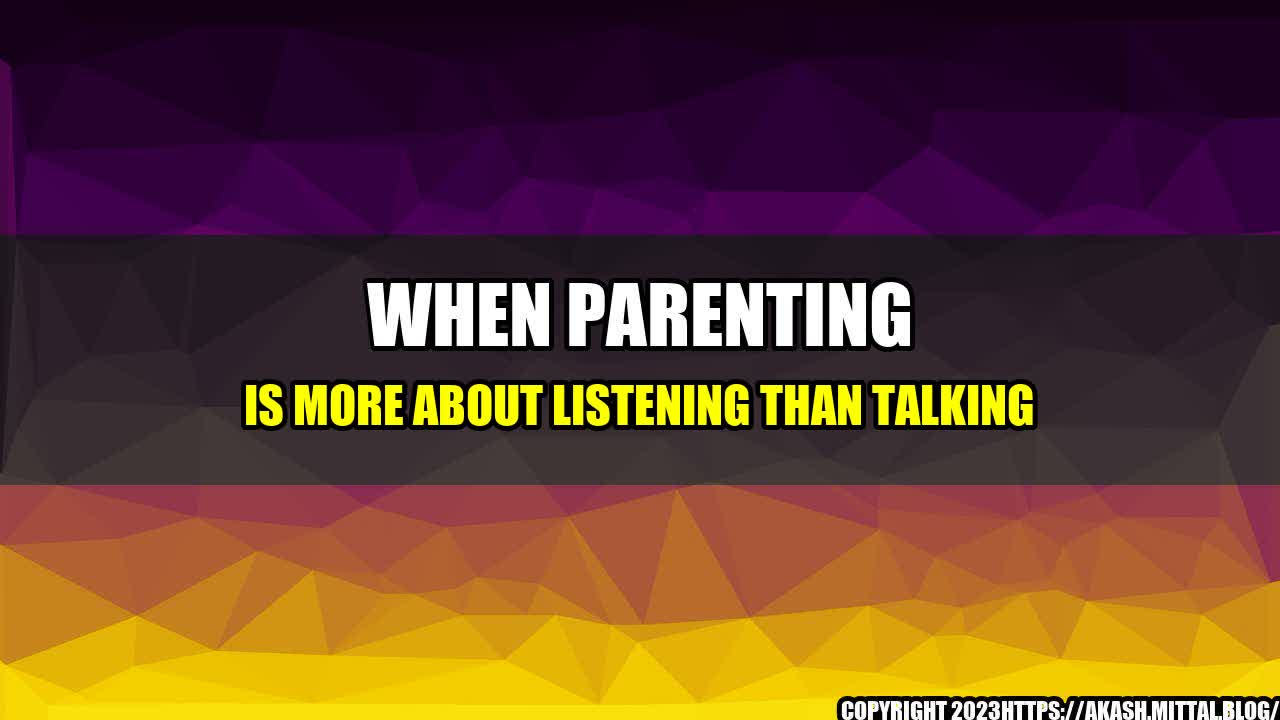When I was a new mother, I felt like I had to have all the answers. I read every book, listened to every podcast, and spent hours scrolling through online forums to find out how to be the best parent I could be. But as my children got older, I quickly realized that parenting is more about listening than talking.
One day, when my daughter was in elementary school, we were sitting at the kitchen table doing homework. She was struggling with a math problem, and I could see the frustration building in her eyes. I started to launch into a lecture about the importance of perseverance and not giving up, but before I could say anything, she looked up at me and said, "Mom, can we just take a break for a minute?"
It was a simple request, but it stopped me in my tracks. With a deep breath, I put down my pencil and listened. We talked about how she was feeling and what was making the problem difficult for her. By the end of our conversation, she was ready to get back to work with a renewed sense of confidence.
This experience taught me that sometimes the best thing we can do as parents is to listen. When it comes to helping our children navigate the ups and downs of life, being a good listener can be more effective than any lecture, punishment, or reward.
Research has shown that children who feel heard and understood are more likely to develop healthy self-esteem, emotional regulation, and social skills. In fact, children who have parents who are good listeners are:
- More likely to speak up for themselves
- Less likely to turn to risky behaviors like drugs and alcohol
- More likely to have positive relationships with peers and adults
Listening can also improve the quality of your relationship with your child. When children feel like their parents are tuned in to their thoughts and feelings, they are more likely to trust them and feel comfortable talking to them about anything.
One of my favorite things to do with my children is to take them out on "adventure walks." We explore our neighborhood and nearby parks, with no set destination or goal in mind. As we walk, we talk about everything under the sun - from school to friendships to our favorite books and movies.
These walks have become a sacred time for us to connect and communicate. I've learned so much about my children's hopes, fears, and dreams from these conversations. And even when we don't have anything pressing to talk about, the simple act of walking together and listening to each other is a powerful bonding experience.
Practical Tips
Here are some tips on how to be a better listener to your children:
- Put down your phone and other distractions when your child is talking to you
- Make eye contact and focus on your child's words and body language
- Offer empathetic responses, like "I can understand why that would be frustrating"
- Avoid judging, interrupting, or trying to solve your child's problems for them
- Encourage your child to talk about their feelings and thoughts by asking open-ended questions, like "How did that make you feel?" or "What do you think about that?"
- Be patient and give your child time to express themselves in their own way and at their own pace
Conclusion
In conclusion, parenting is more about listening than talking. When we take the time to listen to our children's thoughts, feelings, and experiences, we empower them to develop healthy emotional and social skills. By being present, empathetic, and open-minded, we can build stronger relationships with our children and help them grow into confident, resilient adults.

Curated by Team Akash.Mittal.Blog
Share on Twitter Share on LinkedIn